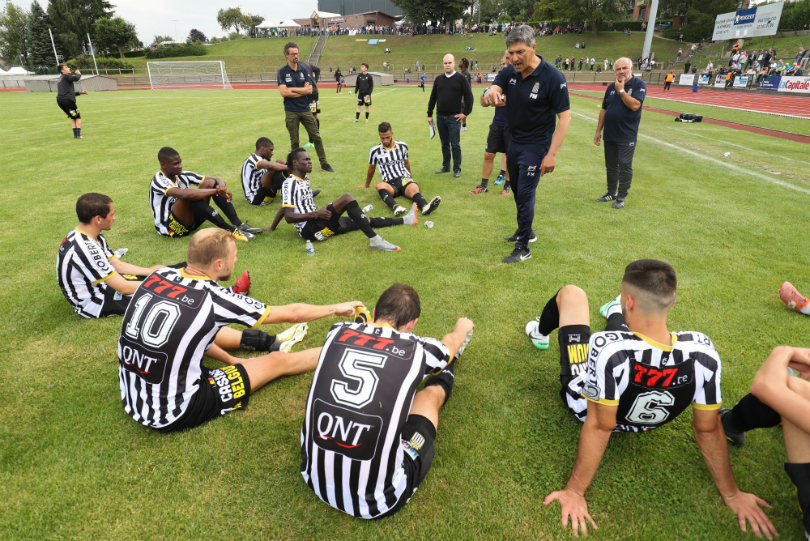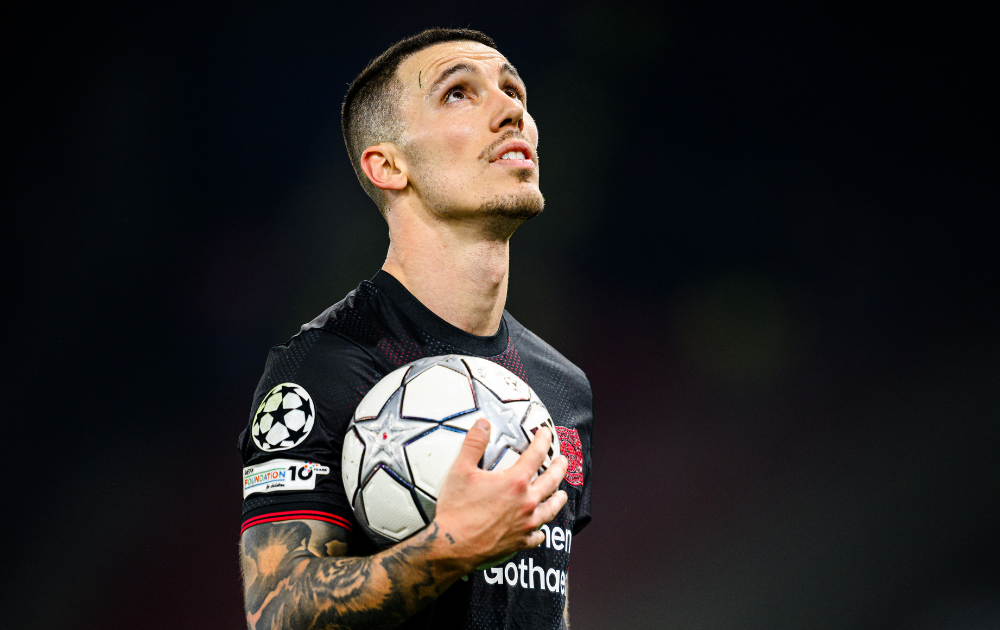
The best features, fun and footballing quizzes, straight to your inbox every week.
You are now subscribed
Your newsletter sign-up was successful
Want to add more newsletters?

Five times a week
FourFourTwo Daily
Fantastic football content straight to your inbox! From the latest transfer news, quizzes, videos, features and interviews with the biggest names in the game, plus lots more.

Once a week
...And it’s LIVE!
Sign up to our FREE live football newsletter, tracking all of the biggest games available to watch on the device of your choice. Never miss a kick-off!
Join the club
Get full access to premium articles, exclusive features and a growing list of member rewards.
You became a coach immediately after retiring - was that always your plan?
When my career came to an end, I never thought I’d be interested in coaching. But then you start to think, what will I do when I reach the end? The fact I didn’t get any qualifications at school meant I had to do it. I started doing the qualifications and surprised myself; I really started to enjoy it. My passion is working with younger players, and I’ve really enjoyed that a lot over the past year since I stopped playing football professionally. I’ve been trying to get as much experience as possible and take as many qualifications as possible. Personally it’s been a huge thing for me in terms of coming out of my comfort zone.
What exactly has dragged you out of your comfort zone?
I’m quiet and not a very confident person, so doing different courses and meeting new people and exchanging ideas – that’s very new to me. I was a quiet player who just enjoyed taking care of himself. You’re doing something you know you can do and you don’t have to think about anything else. Now I have to put myself out there and take myself out of your comfort zone because there aren’t that many positions. Sometimes you have to volunteer. I remember how many people were on the Uefa A Licence course – the competition was fierce and there aren’t that many jobs going round.
How have you found delivering talks and talking given that you’re so quiet?
I thought that would hold me back when I was younger because I could never see myself standing up and talking in front of large groups of people – but it’s just a case of practice and coming out of your comfort zone. It was a struggle to start with at first and I didn’t enjoy it but I've done that much coaching over the last 18 months that I’m comfortable doing it now.
What qualities do you think you need to become a top coach?
I remember working with Sir Alex. He was a great manager but didn’t do that much coaching. He let Steve McLaren do that. He was a big influence on me when I was younger. I learnt a lot from him. The way he communicated was great. He was a great person. I think, first of all, if you’re not a good person you won’t be respected as a coach. I enjoyed working with Karl Robinson at MK Dons because of his enthusiasm. I’m younger players so it’s different to working with adults. You need to earn about each player's character.
People talk about tactics and philosophies – but you really think personality is key?
I would say so, definitely. Particularly at youth level. In any walk of life the character of the person is so important. If people don’t like you they won’t listen to what you saying. It’s not about being everyone’s best mate, but it’s being approachable and personable. Steve McLaren had such a love of coaching. He was so bubbly and he got the players to train at such intensity. You were allowed to play without too many interruptions.
At Man United, what sort of advice did you get from someone like Sir Alex?
A massive thing with the gaffer (Fergie) was making you feel important. As a 14-year-old I played a trial game against Nottingham Forest at Littleton Road. I got the train home and by the time I got home he’d already phoned my mum to tell her that they wanted to sign me. When you get home and hear that it makes you feel incredible. Even at Under-9 and 10 level he knew your name and asked about your family. He made you feel amazing. That gives you huge confidence to express yourself. I want to remember the names of every player I work with - those small details make a huge difference.
Recommended stories
The best features, fun and footballing quizzes, straight to your inbox every week.
How to improve your confidence as a coach
Do former players make good coaches?
Making the transition from player to coach
6 ways to improve your leadership skills
The DNA of a great coach
 Join The Club
Join The Club










